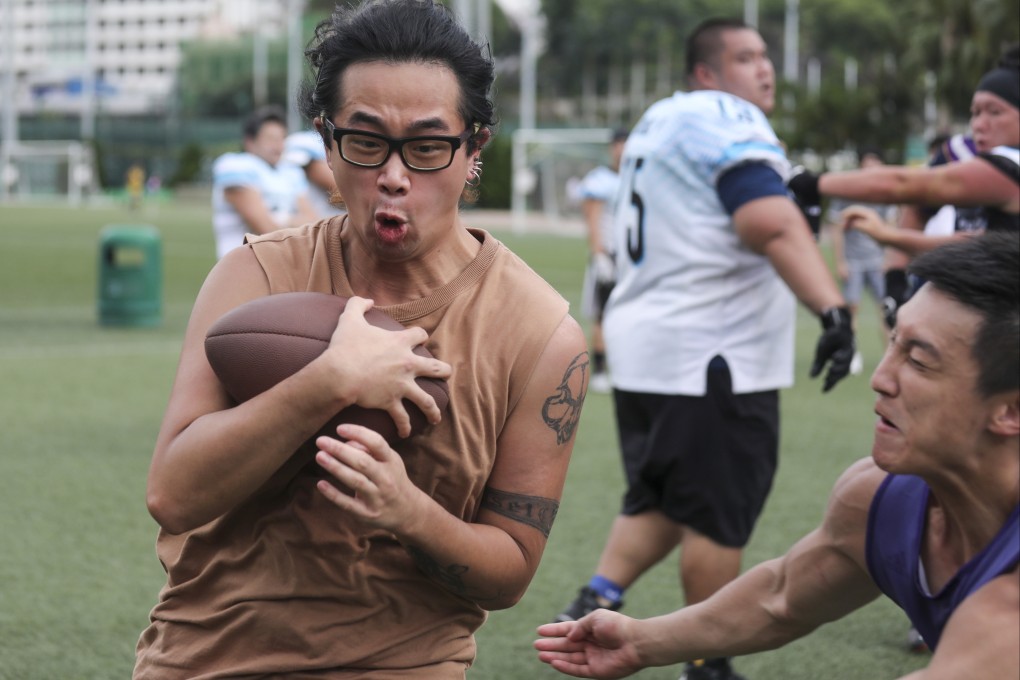Did you know they play American football in Hong Kong? No, we didn’t either, so we went to take a look
- It’s been nine years since Ken Wong and his friends took their passion for American football from watching games online to starting a team in Hong Kong
- The city’s three full contact gridiron teams have build a solid foundation for the sport, which before Covid was competing head-to-head with China’s top American football teams

It is a Sunday in June and an unlikely group of about 50 people have gathered at Happy Valley Recreation Ground in Hong Kong to see if they have what it takes to make it in the rough and tumble world of American football.
They are put through their paces, with formations and drills. There are a few inevitable big hits, but most are there for fun. Heck, after being cooped up for months, it is also a chance to blow off some steam and try something new. Some will come back, but most will simply go home with a few bruises never to return.
Welcome to the preseason tryouts, Hong Kong-style, where size is not particularly important, but a love for the game and an appreciation for American culture has seen the sport develop a small, but dedicated grass-roots following.

“A lot of people in Hong Kong don’t really know what American football is,” Ken Wong, co-founder of Combat Orcas, one of three full-contact teams in Hong Kong, said.
“Most people just play soccer or basketball and don’t really get into contact sports. I’ve been watching American football since I was a secondary year student. I watched NFL and NCAA football on the internet and after a few years I got the chance to play with a group of friends from an online forum and we formed our own team, which was Combat Orcas.”
It has been nine years since Wong and his friends took their passion for American football from merely watching games and chatting online to starting a team, developing an amateur league and building the foundations of a sport that has unearthed some loyal followers across the city.

The Combat Orcas, along with Warhawks and Hong Kong Cobras can play up to seven games in a regular season, more should they make the play-offs.